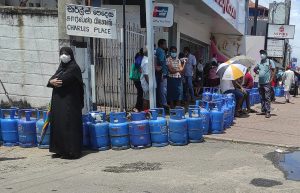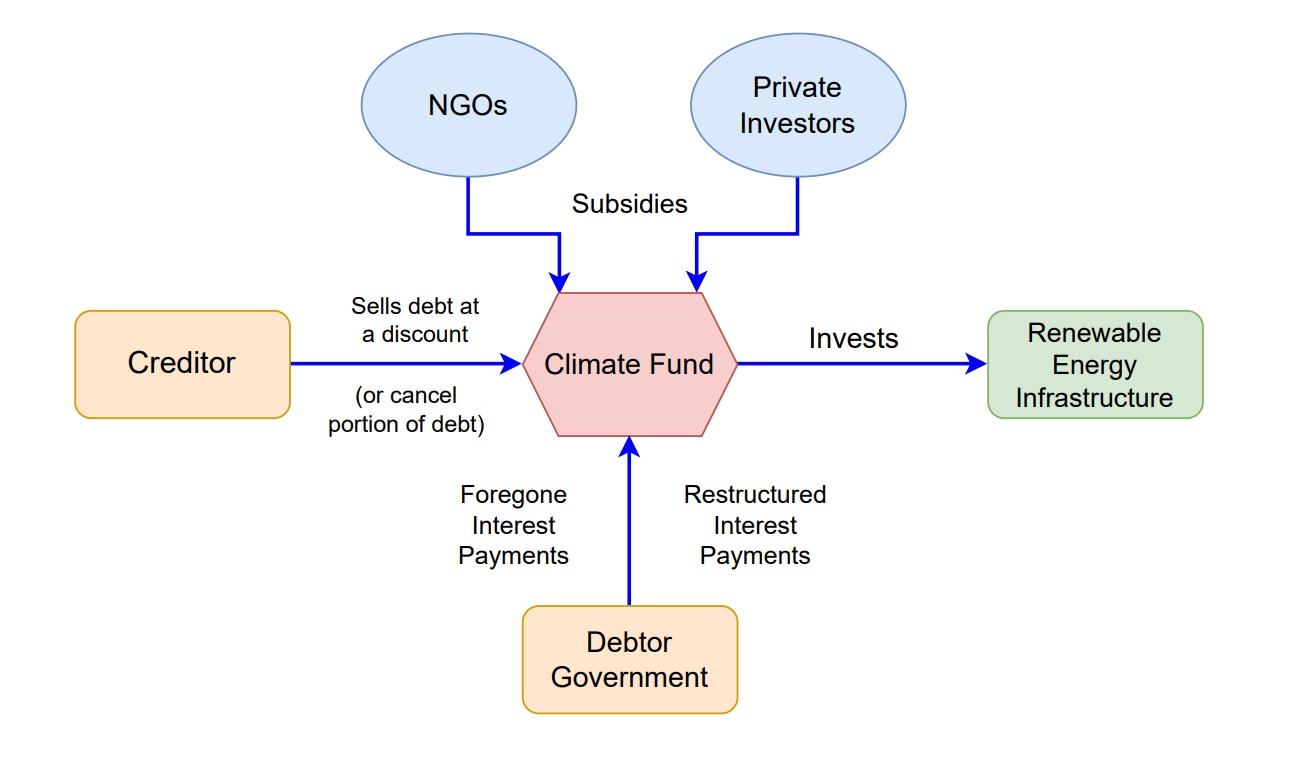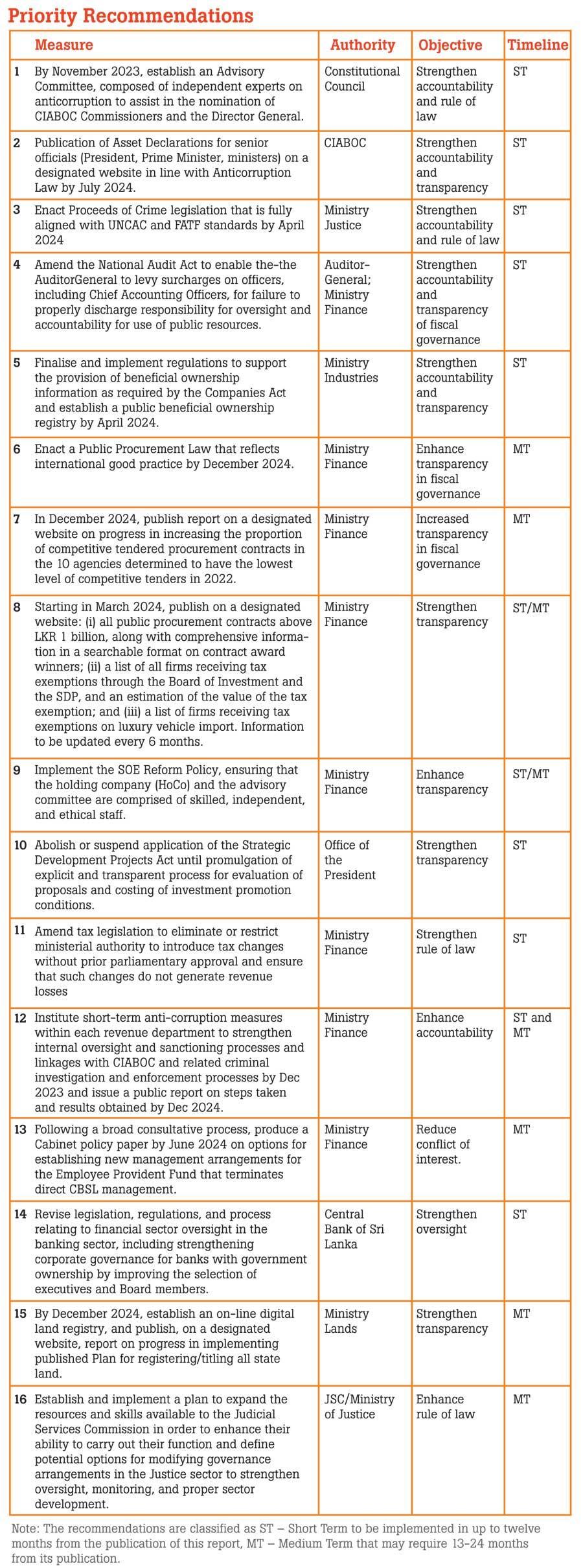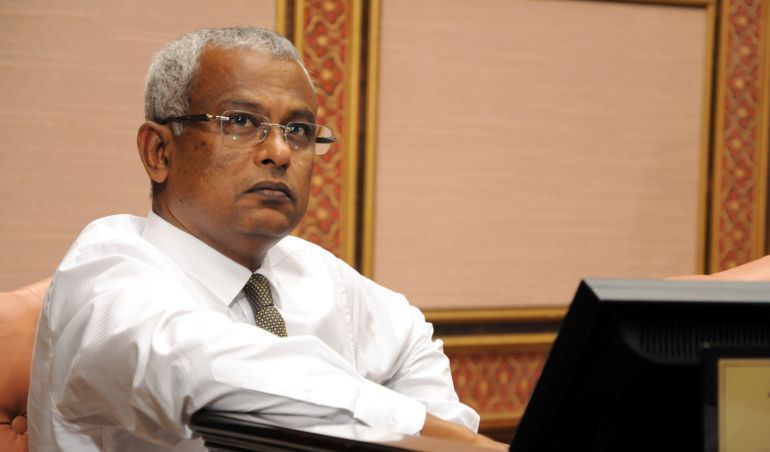දේශමාන්ය ආචාර්ය සුදත් ගුණසේකර. මහනුවර
1992 ප්රාදේශීය ලේකම් කාර්යාල සහ ප්රාදේශීය සභා ඒකාභද්ධ කොට ප්රාදේශීය ලේකම්වරුන් ප්රා. සභාපතිවරුන්ගේ ලේකම් වරුන් වශයෙන් පත්කොට ශ්රී ළන්කා පරිපාලන සේවය විනාශකිරීමේ කුමන්ත්රණයෙන් ගලවාගෙන ශ්රී.ලන්කා පරිපාලන සේවය මරනින් බෙරා ගත්තේ මාය.
ශ්රීලන්කා පරිපාලන සේවයේ මෙන්ම රටේ වාසනාවකට මෙන්, මා එසමයේ ශ්රී ලන්කා පරිපාලන සන්ගමයේ සභාපති විය. 1992 නොවැම්බර් බදුල්ලේ සන්චාරයක ගිය අවාස්ථාවේදී ප්රාදේශීය ලේකම් කාර්යාල සහ ප්රාදේශීය සභා ඒකාබද්ධකොට ප්රාදේශිය ලේකම්වරු ප්රාදේශීය සභා සභාපතිවරුන්ගේ ලේකම්වරුන් ලෙස පත් කිරීමට යෝජනාවේ කෙටුම්පතක් ප්රධාන ලේකම්තුමාගේ මේසය උඩ තිබෙණු මා දුටුවා. ඉන් පිටපතක් ලබාගෙන මම කොළඹට පැමිණි වහාම බණ්ඩාරනායක අනුස්මරණ ජාත්යන්තර සම්මන්ත්රණ ශාලාවේ හදිසි රැස්වීමක් කැඳවා එහි ප්රධාන ආරාධිතයා ලෙස ප්රේමදාස ජනාධිපතිවරයා ගෙන්වා ගැනීමට හැකි උනා. BMICH හි පැවති පළමු SLAS රැස්වීමද එය විය. එම රැස්වීමට දිවයිනේ සියලුම ප්රා.ලේ.කම්වරුන්, දිසාපතිවරුන්, දෙපාර්තමේන්තු ප්රධානීන් ඇතුළු සාමාජිකයින් විසාල පිරිසක් මෙන්ම ජනාධිපති ලේකම් විජේදාස ඇතුළු අමාත්යාංශ ලේකම්වරුන් 25 න් 22ක්ම එදා පැමිණ සිටියා. ලේකම්වරුන්ගෙන් එදා නොපැමිණියේ රැස්වීමේ දිනට දින කීපයකට පෙර විදේශගතවූ රා.ප.පා ලේ කම් ආර්.එස්. ජයරත්න සහ ප.පා.ලේ අයිලප්පෙරුම පමණි. ඒ දෙදෙනාම ඒ බව මට දැන්වූ බවද මෙහි සඳහන් කළයුතුය.
සම්ප්රදායාණුකූලව ජනාධිපතිතුමා පිළිගැනීමෙන් පසු මවිසින් කරණලද කථාවේ සාරාන්ශයේ සින්හල පරිවර්තනය පහතින් දක්වමි.
‘ගරු ජනාධිපති තුමනි,
මේ රටේ ජනාධිපති කාර්යාලයේ සිට සියලුම ජාතික,දිසා ප්රාදේශීය සහ ග්රාමීය මට්ටම්වල සමස්ත පරිපාලන යාන්ත්රණයේම සියලුම ප්රධාන පරිපාලන තණතුරු දරන්නේ අපගේ සේවයේ සාමාජිකයින්. එමනිසා සමස්ත රාජ්ය යාන්ත්රණයේම පරිපාලනයේ සුක්කානම දරන්නේ අපිය. එසේම ඕනෑම රජයක ප්රතිපත්ති සහ වැඩ සටහන් දීප ව්යාප්තව ක්රියාත්මක කිරීම සහ සම්භන්ධීකරණය කිරීමේ වගකීම දරන්නේද මගේ සහෝදර මේ පිරිසමය. අපි ස්වාධීන වුර්තීය රාජ්ය පරිපාලන මහජන සේවකයෝ වෙමු.එසේම සමස්ත රාජ්ය පරිපාලන යාන්ත්රණයේ අයෝමය සැකිල්ලද වෙමු. ප්රාදේශීය ලේකම් වරුන් එම යාන්ත්රණයේ අත්තිවාරමය. ප්රාදේශීය ලේකම් කාර්යාලකියන්නේ එම සමස්ත රාජ්ය යාන්ත්රණයේ පදනමය. එසේම එම රන් දම්වැලේ මධ්යමය සමඟ ගම සම්භන්ධකරණ අන්තිම පුරුකයි. රටේ සමස්ත පරිපාලනය මෙන්ම සන්වර්ධන ක්රියාවලියේ සාර්ථකත්වය රඳාපවත්නේ මේ පරිපාලන යාන්ත්රණයේ කාර්යක්ෂ්මතාව මතය.
අනෙත් අතින් ප්රාදේශීය සභාව කියන්නේ ඒ මට්ටමේම තිබෙන දේශපාලන පක්ශයක ගම්මට්ටමේ ඇති අන්තිම දේශපාලන සන්විධානයයි. ඒවායේ නායකත්වය දරන්නේ ගම්මට්ටමේ සාමාන්ය මහජන නියෝජිතයින්. ඔවුන්ගේ අධාපන මට්ටම් ගැන ඔබතුමාද හොඳින් දන්නවා ඇති.
ඇතැම් විට ඔබතුමාගේ ජනතාව වෙතට පාලනය ගෙනයාමේ සන්කල්පය අනුව ප්ර.ලේ.කාර්යාල ප්රා.දේ සභා සමඟ ඒකාභද්ධ කිරීමෙන් ගම්මට්ටමේ පරිපාලනය මෙන්ම සන්වර්ධනය කඩිනම් වේයයි ඔබාතුමා සිතනවා ඇති. අවසාන ප්රතිඵලය කුමක් වුවත් ඔබතුමාගේ එම අදහසට අපිද ගරු කරමු. නමුත් මේ මට්ටමේ දේශපාලන නායකත්වයේ ගුනාත්මක භාවය කෙසේ වුවත් මෙම සභා හැම්දාම එ. ජා. ප බලකොටුම වේයයි තියෙන සහතිකය කුමක්ද. ඒවා සියල්ල විපක්ෂයට ගියහොත් තමුන්නාන්සෙලාගේ රජය විපක්ෂයේ සභාපති වරුන්ගෙන් පාලනයවන ප්රා.ස ජාලයක් ඇති රටක ප්රා.මට්ටමේ රාජ්යපාලනය හා සන්වර්ධන කටයුතු ක්රියාත්මක කරගන්නේ කෙසේද.එමනිසා ප්රදෙශීය ලේ. කා. මධ්ය්ම රජයේ ආයතන වෂයෙන් පවත්වාගෙන යාම වඩා හොඳය යනු අපගේ අදහසය.
එමනිසා යෝජිත වැඩපීවෙල අප දකින්නේ මේ රටේ ප්රාදේශීය මට්ටමේ සමස්ත පරිපාලනය මෙන්ම සන්වර්ධනය අවුලෙන් අවුලට පත්කෙරෙන වැඩ පිලිවෙලක් වශයෙනි, එසේවුවිට ප්රාන්තයේ මෙන්ම මධ්යයේද කිසිදු පාලනයක් නැති අවුල් ජාලයකට මුලු රටම පත්වනු ඒකාන්තය.
What is more is your excellency I feel that this is a big coup d’etat against you and your government, to destabilize the government and send you home” (this last comment I made only to him)
එමනිසා රටේත් ජනතාවගේත් යහපත නිතරම අපේක්ෂාකරන රාජ්ය පාලන යාන්ත්රණයේ නියමුවන් වශයෙන් අප මෙම යෝජනාව ඉල්ලා අස්කරගන්නා මෙන් අපගේ සන්ගම්ය ඉතා ගවුරවයෙන් ඔබතුමාගෙන් ඉල්ලා සිටිමු.
ඇනතුරුව,
1. ප්රා.ලේ.කාර්යාල සහ ප්රා.දේසීය සභා ඒකාබද්ධ නොකරණ මෙන්ද
2 ප්රා ලේ වරුන් ප්රා .ස. පතිවරුන්ගේ ලේකම්වරුන් වශයෙන් පත් නොකරණ මෙන්ද.
3 මේ දෙකේම කටයුතු එක වහලක් යටතට ගෙන නො එන මෙන්ද
4 ප්රා. ළේ වරුන් වශයෙන් පත් කිරීම සඳහා 1 පන්තියේ ශ්රි.ලන්,ප සේ නිළධාරින්ගේ රික්තයට වෙනත් සමාන්තර සේවා වලින් 1 පන්තියේ නිලධාරීන් පත්කිරීම ඉල්ලා අස්කරගන්නා මෙන්ද
ඊට අම්තරව
6 කිසිම ශ්රී.ලන්. ප. සේ ලේඛනගත තනතුරකට වෙනත් සේවාවලින් නිලධාරින් පත්නොකිරිම
7 ඒ වනවිට ශ්රී.ලන්,ප. පා.සේවයේ 1 මු පන්තියේ උපරිම වාර්ෂික වැටුප වු 27,500 -32,500 දක්වා වැඩි කිරීම. යන ඉල්ලීම් 7 මම ඉදිරිපත් කලෙමි.
අවසාන වශයෙන් මෙම කාරණය පිළිබඳව පසු දිනට ගෙන ඒමට නියමිත අමාත්ය මන්ඩළ පත්රිකාව ඉල්ලා අස්කර ගන්නා ලෙසද ඉල්ලා සිටියෙමි.
මගේ කතාවෙන් පසු, එදා මම මගේ ආසනයට ආපහු පැමිණ වාඩි වීමත් සමඟම, ප්රේමදාස ජනාධිපතිතුමා මගේ පැත්තට හැරිලා .සුදත්ට මගේ සුබ පැතුම් ඔබ විශිෂ්ට දේශනයක් කළා. ” කිව්වා. ‘”Sudath my congratulations. You made an excellent speech” කියලයි එදා ඔහු කීවේ
ඔහුගේ දේශනය ආරම්භ කරමින්, නෝනවරුණි, මහත්වරුනි, මේ යෝජනාව ගැන මේ තොරතුරු තමුන්නාන්සේලාගේ සභාපතිතුමා මගේ අවධානයට යොමු කරනතුරු එහි ඇති භයානක කම මම දැනගෙන හිටියේ නැහැ. මෙය මගේ අවධානයට යොමු කිරීම ගැන මම ඔහුට සහ ඔබ සංගමයට ස්තූතිවන්ත වෙනවාම. ඔහු ඔබේ සංගමය වෙනුවෙන් කළ ඉල්ලීම් සියල්ලම ලබා දීමට මම පොරොන්දු වෙනවායි” ඔහු දේශනය හමාර කළා.
එම යෝජනාවට එදා අප විරුද්ධ නොවී එය ක්රියාත්මක වීමට ඉඩ දුන්නේ නම්, එය ශ්රී ලංකා පරිපාලන සේවයේ අවසානය වනු ඇත. එදා මගේ ඒ විරෝධයෙන් මේ රටේ ඉහළම රාජ්ය සේවයේ අභාවය වළක්වා ගැනීමට හැකිවීම ගැන මම අදත් සතුටු වෙනවා. ඒ වගේම ආඩම්බර වෙනවා. එදා රැස්විමෙන් පසු ප්රේමදාසගේ හැටි දන්නා බොහෝ දෙනෙක් මට ස්තූති කරමින් හා සුභ පතමින් කීවේ ‘සුදත් ඔබ කී කරුණු මෙන්ම ඒවා ඉදිරිපත් කළ විලාශය සහ ඔබේ භාෂාව දෙස බලාගෙන සිටි අපට ලොකු භයක් ඇතිඋනා. වරෙක අපි හිතුවේ සුදත්ට අද ඔලුව නැතිව ගෙදර යන්ට වෙයිද දන්නේ නෑ කියල.
මගේ සේවය සහ එහි අනාගතය වෙනුවෙන් ඒ වගේම මගේ රට සහ ජනතාව වෙනුවෙන් එදා ලබාගත් එම ජයග්රහනයෙන් පසු බන්ඩාරනායක ජාත්යන්තර සාලාවෙන් පිටවී ආවේ රටක් රාජ්යක් දිනාගත් යුධ සෙන්පතියෙකු මෙන් මහත් අභිමානයෙන්, මා මෙලොවට බිහිකොට ලොකුකොට හදා වැඩු මගේ දෙමපියන්ට සහ ශිල්ප සාස්ත්ර ලබාදුන් මගේ ගුරුවරුන්ටද පින් දෙමින්.
****
එදා 58/92 පනත සහ 21/92 චක්රලේඛය යන ඉහත යෝජනා දෙක කවුරුන් හෝ මගේ අවධානයට යොමු කළා නම් මට ඒවාත් මගේ ලැයිස්තුවට ඇතුළත් කර ඒවා ක්රියාත්මක කිරීමද අනිවාර්යයෙන්ම නැවැත්වීමට තිබුණා. එසේ නොවීම ගැන මම අද කණගාටුවෙමි. මා1992 වන විට අමාත්යාංශයක ලේකම්වරයකුව සිටියේ නම් හෝ ශ්රි.ලන්.ප පා.සේ සභාපතිවරයා වශයෙන් මෙම කරුණු 2 (අංක58/92 සහ 21/92 පනත) කවුරුන් හෝ මගේ අවධානයට යොමු කළේ නම්, අනිවාර්යයෙන්ම මම එම ප්රශ්න දෙකද නියත වශයෙන්ම එදා ලැයිස්තුවට ඇතුලට කොට ඒදෙකද විසඳා ගන්නවා.
පසුවදා උදේම මගේ යාළුවා විජේදාස මට කතා කරලා මගේ සුබ පැතුම් සුදත්” කියලා මගෙන් ඔහු ඇහුව සුද ත් දන්නවාද ඊයේ ජනාධිපති තුමා සමුගැනීමට පෙර මොකද මට කීවේ කියලා. ඉතින් මන් ඇහුව මොකද පොහොර උරයකට දාලා කට අගින් බැඳල ගෝල්පේස් එකෙන් මුහුදට දාන්ට කීවද කියල. මොකද ඒ වන විට මා සීට්යේ පූල් එකේ නිසා. එවිට ඔහු කීවේ
ඒ අනුව වහාම ක්රියාත්මක වන පරිදි සෞඛ්ය අමාත්යාංශයේ රාජ්ය ලේකම් ලෙස, මා පත් කර ඇති බව ඔහු මට දැනුම් දුන්නා.
1993 ජනවාරි 01 වැනි දින සංචිතයෙන් කෙළින්ම මා අමාත්යාංශ ලේකම්වරයකු ලෙස පත් වූයේ එලෙසිනි. ඒ වනවිට දේශපාලන පළිගැනීම් නිසා ලේකම්, අතිරේක ලේකම් වැනි තනතුරු ලබා සිටි මට වඩා කණිෂ්ඨ නිළධාරීන් 104 ක් අභිභවා අහිමිවූ ජේෂ්ඨත්වයද ලබාගෙන කැබිනට් අමාත්යාන්ශ කීපයකම ලේකම් වරයකුද වැශයෙන්ද කටයුතුකොට අවසානයේදී අග්රාමාත්ය බණ්ඩාඅරනායක මැතිනියගේ ලේකම් වශයෙන් විශ්රාම ළැබීමට මට අවස්ථාව ළබුණේ එදා මගේ වුර්තිය වූ ශ්රී ලන්කා පරිපාලන සේවයට සහ රටට කළ සේවය නිසායැයි මම අදත් සිතමි.
ප්රේමදාස ජනාධිපති සමඟ මා ජීවිතයේ කිසිම දිනක වැඩකරලා නෑ. කිසිම දෙශපාලන සම්භන්ධයක් තිබිලත් නෑ.එකම හමුවීම දෙක පෙරාදෙනියේ මා ආරම්භකල හද බිම අධිකාරිය භාර ඇමතිවරයා වූ ධර්මදාස බන්ඩා සහ එවකට මහනුවර දිසාවේ දිසා ඇමති දිසානායක සමඟ ඇතිවු දේශපාලන ආරවුල් දෙකක් පිළිබඳ ජනාධිපති කාර්යාලයේ පැවති සාකච්චා දෙකකට සාභාගී වීම පමණි.
1985 දෙ 31 දා වසාදැමීම්ට තිබුණු අධිකාරියට නව පණක් දී මා විසින්ම නිර්මාණය්හ කරණළද ශ්රී ලන්කා හදබිම අධිකාරියේ විධායක අධ්යක්ෂවරයා ලෙස WFP සන්විධානයෙන් ඩොලර් මිලියන 12.5 ක අහාර ආධාර ලබාගතිමි. මේ යටහේ ජනපදිකයින් 35,000 කට වසර 6ක් පුරා තුන්වේලක් ආහාර ලබාදී පෙර කිසිදිනක නොවූ විරූ සන්වර්ධනයක් ඇති කෙරිණ 1991 වසරේ අග්නිදිග ආසියාවේ හොඳම කුඩා ගොවිපල ව්යාපෘතිය වශයෙන්ද එය තෙරින. NADSA නැමති මළ ව්යාපෘතිය නැවත ගොඩගැනීම හේතුවෙන් නුවර පලාතේ දෙශපාලකයින්ගේ බලපෑම් මත එම ප්රේමදාස විසින්ම මාරුකරණු ලැබ මම ඒ වන විට සිටියේ පරිපාලන සේවයේ රක්ෂිත භණ්ධනාගාරයවු සන්චිතයේය.මා තෙවරක් සන්චිතයට දමා ඇතත් කිසිදිනක සන්චිතයේ පොත අතසන් කිරීමට ගියේ නැත.එවැනි සෑම අවස්ථාවකදීම නුවර කච්චේරියේ දිසාපතිවරයාගේ කාමරයේ පොතක අත්සන්කිරීමට යොදා ගතිමි.
මගේ හදබිම සැළැස්මේ මූලික අරමුණු වූයේ මේ රටේ ප්රධාන ජලපෝශක ප්රදේශයවූ මධයම කඳුකරයේ බහුතික ස්ථාවරභාවය ආරක්ෂා කිරීම, ඉන් දසදෙසට ගලායන ගන්ගා පද්ධතිය ආරක්ෂාකොට ගැනීම මගින් මේ රටේ සකළවිධ ජීවී පද්ධතිය, ගන්ගා පද්ධතිය සහ මානව ශිස්ඨාචාරය රැකගැනීම සහ කන්ද උඩරට ඉඩම් නැති උඩරට ජනතාවගේ සහ මේ රටේ නීත්යානුකූලව පුරවැසිබව ලබන වතු දෙමල ජනතාවද පදින්චි කරන කුඩා ගොවිපල යෝජනා ක්රමයකි. මේ යටතේ මගේ සැලැස්ම වූයේ මිශ්ර ගොවි පවුල් 250.000 ක් (අක් 2 ½ ගොවිබිම්වලා පදින්චි කිරීමය. මෙහිදී 1978 දී මහනුවර සහ කෑගල්ල දිසා දෙකේ කුඩා ගන්ගානිම්න කීපයකට පමණක් සීමාවූ මෙම ව්යාපෘතිය නව යෝජනාව යටතේ මධ්යම,ඌව සහ සබරගමුව යන පලාත් තුනම ආවරණය වන පරිදි යෝජනාව පුළුල්කොට NADSA යන්න ශ්රී ළන්කා හදබිම අධිකාරිය” වශයෙන්ද නම්කලෙමි. මෙම නව යෝජනාව අනුව එය දිවයිනේ මුලු වර්ගප්රමාණයෙන් 1/3 සහ ජනගහනයෙන්ද 1/3 ක් ආවරණය වන පරිදි පුලුල් කෙකෙරින.
1992 පැවති රජය මේ රටේ දිස්ත්රික් පරිපාලනයට ඇති කළ විනාශයට සම්පූර්ණයෙන්ම වගකිව යුතුය. මීට අමතරව, එම රජය විසින්ම 1988 දෙසැම්බර් 17 වන දින සම්මත කරන ලද 16 වන ආණ්ඩුක්රම ව්යවස්ථා සංශෝධනය මඟින් 58/92 පනත ක්රියාත්මක කිරීමට අමතරව අදාළ පළාත් දෙක තුළ මෙම බලතල පහසුවෙන් ක්රියාත්මක කිරීම සඳහා අවශ්ය පරිපාලන, නීතිමය සහ භාෂා යටිතල පහසුකම් ඒ වනවිටත් සපයා තිබුණි.
1989 ජනවාරි 2 ප්රේමදාස ජනාධිපති විය. ඒ අතරේ 16 වැනි සංශෝධනය පාර්ලිමේන්තුවේදී සහතික කළේ 1988 දෙසැම්බර් 17 වැනිදා. දැන් පේනවා නේද මේ ව්යසනවලට ප්රේමදාස කොච්චර සම්බන්ධද කියලා.
58/92 සහ 21/92 වැඩපිළිවෙල දෙක ක්රියාත්මක වෙන්නේ මේ විදියට. එහි ප්රතිපාදන අනුව ඉඩම් සහ වාරිමාර්ග ආඥආ පනත වැනි අනෙකුත් සියලුම විෂයයන් සම්බන්ධයෙන් එතෙක් දිසාපති වරුන් විසින් ක්රියාත්මක කරන ලද සියලු බලතල ප්රාදේශීය ලේකම්වරුන් වෙත, මාරු කරන ලදී. ප්රාදේශීය ලේකම්වරුන් ලෙස නම් කළත් ඔවුන් එක රැයින් නිළ නොලත් එහෙත් බලයලත් ප්රාදේශීය දිසාපතිවරුන් වශයෙන් පත්විය. කාර්යාල ප්රාදේසීය මහ ලේකම් කාර්යාල වශයෙන් නම්කෙරින. ඇත්තවශයෙන්ම ඔවුන් දැන් ප්රාදේශීය මහ ලෙකම් වරුන්ය.ඒ අනුව දැන් ඒ තුල නිළනොලත් ප්රාදේශීය දිසාපතිවරුන් 345 කි.මෙම නව බලතල සමඟින් ඔවුන් ඉඩම් සහ අනෙකුත් සියලුම විෂයයන් සම්බන්ධයෙන් තම කොට්ඨාස තුළ ඇති එකම බලධාරීන් බවට පත්වී හමාරය.
රා.ප.පා.චක්රලේඛය 21/92 යටතේ ප්රා.ලේලාට පවරා ඇති විෂයන් සම්බන්ධයෙන් කිසිදු අධීක්ෂණ අධිකාරියක් දිසා මට්ටමේ නැත.දිසා මට්ටමේ මැතිවරණ කටයුතු සඳහා පමණක් සම්බන්ධීකාරක ලෙස හිටපු දිසාපතීන් පත් කෙරිණ. ඔවුන් දැන් දිස්ති්රක් ලේකම්වරුන් ලෙස නම් කර ඇති අතර කච්චේරි ක්රමයට තිරය වැටෙන බැවින් 21/92 චක්රලේඛය සම්පූර්ණයෙන් කි්රයාත්මක කිරීමත් සමඟ ඔවුන් අතුරුදහන් වන තෙක් කාලය සටහන් කිරීමට අපේක්ෂා කෙරේ.රටපුරා දිසා ලේකම් වරුන් 25ක් සිටියද මේ කිසිවෙක් රටේ පාලනයට සිදුවී ඇති මේ මහා විනාශය ගැන වචනයක්වත් කථා කරන්නේද නැත.
උතුරු නැඟෙනහිර පළාත්වලට අවධානය යොමුකලොත් මේ ප්රදේශවල සිටින සියලුම දේශපාලනඥයෝ දෙමළ අයය. ආණ්ඩුකාරවරු දෙමළ. දිස්ත්රික් ලේකම්වරුන්, ප්රධාන ලේකම්වරුන් වැනි ඊනියා ප්රධාන රාජ්ය නිලධාරීන් සියලු දෙනා ද දෙමළ ජාතිකයන් ය. මෙම දිස්ත්රික්ක දෙකේ ප්රාදේශීය ලේකම්වරු, ග්රාමසේවකවරු, සියලුම රජයේ දෙපාර්තමේන්තු ප්රධානීන් සහ සියලුම රාජ්ය නිලධාරීන්ද දෙමළ ජාතිකයන්ය. ආණ්ඩුක්රම ව්යවස්ථාවේ 16 වැනි සංශෝධනය යටතේ මේ පලාත් දෙක තුල සියලුම රාජ්ය නිලධාරීන්ගේ වැඩ කරන භාෂාව දැන් දෙමළ බවට පත්ව ඇත. මේ අනුව, ජාත්යන්තර වේදිකාවල වාර්ගික වෙනස්කම් කිරීම් සහ ජන සංහාරය ගැන කෑගසද්දී තනි දෙමළ පරිපාලනය පමණක් නොව ඊළම පවා මේ පළාත් දෙක තුළ දැනටමත් ස්ථාපිත වී ඇති බව දැන් පැහැදිලිය. ඉතිරිව ඇත්තේ ඉන්දීය රජයේ ආඥා ප්රකාශයක් යටතේ සන්ගුව පිඹ ඊළාම් බැනරය යටතේ ඊලාම් රාජ්ය ප්රකාශ කිරීම පමණි.
එම ප්රදේශයේ සේවය කරන මිනින්දෝරු අධිකාරිවරයෙක් මා සමඟ පැවසුවේ, නැගෙනහිර පළාතේ දෙමළ සහ මුස්ලිම් ජනතාව පදිංචිව සිටින සියලුම ඉඩම් සඳහා අනෙකුත් පළාත්වල මෙන් කෘෂිකාර්මික කටයුතු සඳහා පර්චස් 40 ට හා පදින්චියට පර් 20 සීමා නොකර අනවසර කරුවන් අල්ලාගෙන සිටින මුලු ඉඩමටම මිනින්දෝරු සැලැස්ම ලබා දීමට තමාට නියෝග ලැබී ඇති බවයි. ඒ අනුව මේ සින්හල රටේ සුද්දා කාලේ මෙන්ම අදටත් වැඩි වරප්රසාධ ලැබෙන්නේදෙමල මුස්ලිම් මිනිසුන්ට මිස වසර 2500 කට වැඩිකලක් මේ බිමේ ජන්ම උරුමය ඇති භූමිපුත්ත්රයින්ට නොවේ නේද.
යටත් විජිත පාලකයින්න්ගේ ප්රතිපත්තියම අනුගමනය කරමින් එදා මෙන්ම අදද ආණ්ඩුව සිංහල බහුතරය සුළු ජාතියක් කොට මේ රටේ සින්හලයින්ගේ රජය ඔවුන්ට සලකන්නේ සුළු ජන කොටසක් ලෙස මිස රටේ අයිති කරුවන් සහ ජාතිය වශයෙන් නොවෙන බව මින් පැහැදිලිවෙයි. ප්රේමදාස ජනාධිපතිවරයාට පින්සිදු වෙන්න, 13 වැනි සංශෝධනය ගැන වචනයක්වත් කථා නොකොට ඒ පළාත් දෙක තුළ වසර 2600ක් තිස්සේ සටන් කර ලක්ෂ ගණනින් මියගිය අපේ සියලුම දේශප්රේමී මුතුන් මිත්තන්ගේ සියළුම වීරෝධාර ජයග්රහණයන් සියල්ල බල තණ්හාවෙන් පෙළෙන වර්තමාන දේශද්රෝහී දේශපාලඥයින් විසින් එක් පෑන් පහරකින් පාවා දෙනු ලැබ ඇත.
එබැවින් මතු දිනක පහලවන දේශප්රේමී සිංහල ආණ්ඩුවක් විසින් හෝ 1992/ 58 පනත සහ රා.ප.පාලණ චක්රලේඛය 21/92 වහාම අහෝසි නොකළහොත් තව වසර දෙක තුනක් ක් ඇතුළත 13 න පුළුස්සා දැමුවද දිවයිනේ මුළු භූමි ප්රමාණයෙන් 1/3 කින් සමන්විත සමස්ත භූමි ප්රමාණයම මෙම පළාත් දෙකේ රටේ ජනගහනයෙන් 4% ක් පමණ වන ඊළම්වාදී දෙමළ ජනතාව විසින් පමණක් අල්ලා ගනු ඇත. එවිට ශ්රී ලංකා මිනින්දෝරු දෙපාර්තුමේන්තුව විසින් සකස් කරන ලද නෛතික සැලැසුම් මත 13 යට්තේ ඉඩම් බලය නොදුන්නද මෙම පළාත් 2 ම සිංහල රටෙන් ඉවත් කිරීම නියත නිගමනයක් වනු ඇත. එමනිසා මේ මහා ව්යශනයෙන් මේ ර්ට හා ජාතිය බේරාගැනිමට නම්, 1987 ජේ ආර්/රජිව් ගිවිසුම මෙන්ම 13 වන සන්සෝධනයද නොපමාවම අහෝසි කළ යුතුය. පවතින ඉඩම් අන්සතු කිරීමේ නීතිවලට සහ පුරාවස්තු ආඥා පනතේ විධිවිධානවලට පටහැනිව සියලුම මහවැලි ඉඩම්, පුරාවිද්යා රක්ෂිත, පන්සල් ඉඩම් පවා මේ ප්රදේශවල වෙසෙන දෙමළ සහ මුස්ලිම් ජනතාවට ලබාදීමට ජනාධිපතිවරයා දැනටමත් නියෝග කර ඇති බවද පැවසේ. ඒ අනුව ඊළම ප්රකාශ කිරීම දැන් කාලය පිළිබඳ ප්රශ්නයක් පමණි.
ප්රභාකරන්ට අවුරුදු 30 ක් තුවක්කුවෙන්, භීෂණයෙන් කරන්න බැරිවුණ දේ අවුරුදු 2ක් ඇතුළත මේ දේශද්රෝහී උපකරණ දෙකට සහ ප්රේමදාසගේ 16 වැනි ආණ්ඩුක්රම ව්යවස්ථා සංශෝධනයට පිං සිද්ධ වෙන්ට දැන් සම්පූර්ණ වී හමාරයි නේද? මේ ක්රියාවලියේදී අදූරදර්ශී, ආත්මාර්ථකාමී, දෙශද්රෝහී දේශපාලකයින් එකවර කරුණු දෙකක් සාක්ෂාත් කර ගෙන ඇත. එනම් 58/92 පනතින් සහ රා.ප.පා. චක්රලේඛය 21/92 න් මීට පෙර, පරිපාලනය සහ සංවර්ධනය යන දෙකම මධ්යම රජයේ අධිකාරය ක්රියාත්මක කළ, මේ රටේ කලක් හොඳින් ස්ථාපිතවී තිබුණු, පෙරදිග ලෝකයේ හොඳම දිස්ත්රික් පරිපාලනක්රමය විනාශ කිරීමය. දෙවැන්න 13 ක්රියාත්මක නොකරම මෙම පළාත්වල සියලුම සිංහල සහ මුස්ලිම් ජනතාව ඉතා කෙටි කාලයක් තුළ ඝාතනය කිරීමේ හෝ නැතහොත් එළවා දැමීමය.
එබැවින්, මෙම පළාත් දෙකෙන් සියලුම සිංහලයන් සහ මුස්ලිම්වරුන් මරා දැමීම හෝ ඉවත් කිරීම සහ ඊළම ප්රකාශ කිරීම නැවැත්වීම සඳහා 58/92 පනත සහ චක්රලේඛ 21/92 අහෝසි කිරීම ජාතික හදිසි අවශ්යතාවයකි. ඊනියා පරමාධිපත්යය හිමිව ඇතැයි කියන මේ රටේ ජනතාවගෙන් 69.5%ක ඡන්දය ට පින් සිදුවන්ට බලයේ සිටින 134 දෙනාට සහ ඔවුන්ගේ චන්දයෙන් තෝරාගත් ජනාධිපති වරයාට මේ භාරධූර වගකීම අපි භාර දෙමු. එසේ නොකලහොත් ඊ ලඟ මැතිවරණවලදි මේ සියළුදෙනාම අනිවාර්යෙන්ම ගෙදර යැවිය යුතුය.
මේ රටේ වසර 1000 ගාණනක් තිස්සේ පැවති පාලන ක්රමයේ සහ වසර 200 කට ආසන්න අධිරාජ්යවාදි ක්රමයේ සන්කළනයක් වූ දිසා පරිපාලනයේ මරණය සනිටුහන් කළ ඉහත 58/92 සහ 21/92. ණම්වූ මෙම විෂ බෝම්බ දෙක සහ ආණ්ඩුක්රම ව්යවස්ථාවේ 16 වැනි ව්යවස්ථා සංශෝධනය ආවරණ කොට ගෙන බෙදුම්වාදය සිය කැත හිස ඔසවමින් පරම අරාජික යුගයක උපත සනිටුහන් කර ඇත. මෙම නීතිමය සහ පරිපාලන උපාන්ග තුන මේ රටේ බහුමික අඛණ්ඩභාවයේ සහ පරිපාලනයේ සම්පූර්ණ බිඳවැටීමේ තීරණාත්මක් සන්ධිස්ථානයක් සනිටුහන් කරයි.
පසුගිය ක්රමය යටතේ දිස්ත්රික් පරිපාලනය සම්බන්ධයෙන් තම දිස්ත්රික්කවල රජවරුන් සහ අණදෙන නිලධාරීන් ලෙස කටයුතු කළ දිසාපති වරුන් දැන් ප්රාදේශීය ලේකම්වරුන් සහ ග්රාමසේවකවරුන් කෙරෙහි පරිපාලන හෝ අධීක්ෂන බලයක් හා අධිකාරියක් නොමැති යල් පැනගිය පුරාවස්තුන් සේ පෙනෙන පඹයින් බවට පත්ව ඇත. වරක් මේ රටේ දිස්ත්රික් පරිපාලනයේ විශිෂ්ට යාන්ත්රණයක වානේ පදනම ඔවුන්ය. පෙර පැවති ක්රමය යටතේ දිසාපතිවරුන් වූයේ රාජ්ය සේවකයින් සහ ඔවුන්ගේ රැකියාව දන්නා ජ්යෙෂ්ඨ වෘත්තීය පරිපාලන නිලධාරීන්ය. නමුත් නව ක්රමය යටතේ දේශපාලන ගැත්තන් වන ආණ්ඩුකාරවරුන් නැමති සත්ව විෂේශයක් පළාත් සහ දිසා යන දෙකම ඇතුළු මුළු රටම විනාශ කරයි. ඔවුන් වෘත්තිකයන් ද නොවේ. සියල්ලෝම පාහේ ප්රතික්ෂේප වූ දේශපාලනඥයන් හෝ ජනාධිපතිවරයාගේ හෝ ඇමැතිවරුන්ගේ ඥාති මිත්රයෝ වෙති. ඉතා දුර්ලභ අවස්ථාවන්හිදී හැරෙන්නට ඔවුන්ගෙන් බොහෝ දෙනෙක් රටට හෝ තම තමන්ගේ පළාත්වල ජනතාවට කිසිදු සේවයක් සිදු නොකළ පක්ෂ දේශපාලනය නිසා ජනතා මුදලින් සුර සැප විඳින කැබිනට් අමාත්ය තත්ත්වය සහිත කුමාර වරප්රසාද ලාභීහු වෙත්.
ආණ්ඩුකාරයින් විසින් විධායක ජනාධිපති බලතල තම පුද්ගලික, දේශපාලන හා වාර්ගික අවශ්යතා සපුරා ගැනීම සඳහා දැඩි ලෙස අවභාවිත කිරීම පිළිබඳ කදිම උදාහරණයක් වන්නේ පුරාවිද්යාත්මක බෞද්ධ විහාරස්ථානයක් ඉදිකිරීම තහනම් කරන ලෙස තමන්ට නැති බලතල පවා ප්රාදේශීය ලේකම්වරයකු ලවා ආණ්ඩුකාර මුද්රාවේ අනුහසින් දුරකතන පනිවිඩයකින් ක්රියාත්මක කිරීමේ සිද්ධියක් නැගෙනහිර පලාතේ ආණ්ඩුකාර සෙන්තිල් තොණ්ඩමන්ගෙන් වාර්තාවිය. ආණ්ඩුකාරවරයා ලෙස එවැනි විධානයක් දීමට ඔහුට අධිකරණ බලයක් නොතිබූණුද ඔහුගේ පරිපාලන ග්රහනයේ සිටින ප්රාදේශීය ලේකම්වරයකු ලවා පුරවිධ්යා රක්ෂිතයක් වන බොරලුකන්ද රජමහා විහාරයේ තැනීම් නතරකිරීම මීට හොඳ උදාහරණයකි.
මොහු රාජ්යසේවය හෝ පරිපාලනය ගැන කිසිත් නොදත් කඳුකරයේ ඉන්දියානු සම්භවයක් ඇති වතු දෙමළ ජාතිකයෙකි. මෙතරම් උසස් රාජ්ය තනතුරක් දැරීම සඳහා රට වෙනුවෙන් ඔහු සිදුකොට ඇති කීර්තිමත් සේවයක් ඔහු සතුව නොතිබුණි.මෙහි ඇති වඩාත්ම භයානක මෙන්ම ඛෙධනීය කරුණ වන්නේ මේ රට කුමන්ත්රණයෙන් අල්ලාගත් සුද්දන් විසින් බලහත්කාරයෙන් අල්ල්ලගත් සින්හලයිගේ පාරම්පරික ඉඩම් වල ආරම්භකල ඔවුන්ගේ තේ වතුවල වහල් මෙහෙයට ඉන්දියාවෙන් මෙහි ගෙනආ කම්කරුවෙකු විසින් අහම්බෙන් ලැබුණු දේශපාලන බලය සහ දෙමළ සන්ධානයේ නායක සම්භන්ධන්ගෙන් ලත් නියෝගයක් මත, තවත් දෙමළ නිලධාරියකුම ලවා මේ රටේ පුරාවිද්යා රක්ෂිතයක්වූ වසර් 1000 ගණැනක් පැරනි බෞද්ධ සිද්ධස්ථානයක තැනීමක් නීති විරෝධීව නතර කිරීමය.මෙම සිද්ධිය වාර්තාවු විගස මේ සින්හල බෞද්ධ රටේ ජනාධිපති වරයා විසින් කළයුතුව තිබුණේ එම තන්තුරට නොසුදුසු මෙම ආණ්දඩු කාරයා වහාම නිලයෙන් ඉවත් කිරිමයි. එහෙත් අද වනතුරුම එවැන්නක් වූ බවක් නොපෙනේ.වර්තමානයේ මේ රටේ පවතින යහපාලානය්ට මෙය් කදිම උදාහරණයක් නොවේද?
පැහැදිලිවම ජනාධිපතිවරයා විසින් ඔහුව නැගෙනහිර ආණ්ඩුකාරයා ලෙස පත් කර ඇත්තේ තමන්ගේ පෞද්ගලික අරමුණු ඉටුකර ගැනීමටය. ඉන් පළමු අරමුණ වන්නේ ඔහු CWC සභාපති බැවින් කඳුකරයේ ඡන්ද ආකර්ෂණය කර ගැනීමය. දෙවන ඉලක්කය වන්නේ ඔහුට කිසිදා නොලැබෙන නැ. හි. පලාතේ දෙමළ ඡන්ද ඊළඟ ජනාධිපතිවරණය සඳහා ලබාගැනීමය.මෙහිදී අපට නැගෙන අනෙක් වැදගත්ම ප්රශ්නය වන්නේ සින්හල බෞද්ධයින්ගේ බහුතරයේ ලක්ෂ 69.5 ක චන්දයෙන් බලයට පත්වූ පොදු පෙරමුණු මන්ත්රීවරුන් කියන මෝඩ රැළ මේ සම්භන්ධයෙන් කරන්නේ කුමක්ද කියන එකය.
අනෙක දකුණේ කුමන සිට උතුරේ කෝකිලායි දක්වා විහිදෙන (කි.මීටර් 200 කට ආසන්න) ඉන්දියන් සාගරයට විවෘත, දිගු වෙරළ තීරය දෙස බලනවිට ජනාධිපතිවරයා ඒ පලාතේ සංවර්ධනයට සැබවින්ම උනන්දු වන්නේනම් නම් සහ රටේ ආරක්ෂාව ඇතුළු සමස්ත ජනතාවගේ සුබසාධනය ගැන අවංකව සැලකිලිමත් වන්නේනම් නම්, සිහිනෙන් පවා තමා ඉන්දියානුවෙක් යැයි සිතන, ඔහුගේ සියලු බැඳීම් තම මාතෘ භූමිය වන ඉන්දියාව සමඟ වන අතර ඔහුගේ අධ්යාත්මික සහ දේශපාලන යන දෙඅංශයේම ඔහුගේ සියලු දෙවිවරුන් ද ඉන්දියාවේම සිටින ඔහුගේ ලොක්කාවූ අනෙක් තොන්ඩමන් මෙන්ම ඔහුගේ පක්ෂපාතීත්වයද ඉන්දියාව සමඟ මිස කිසි විටෙකත් ශ්රී ලංකාව සමඟ නොවන, සිහිනෙන්හෝ මේරට තමාගේ මව් රට වශයෙන් නොසිතන, ගතින් මෙන්ම සිතින්ද ,සැබයින් මෙන්ම සිහිනෙන්ද ඉන්දියන් කාරයෙකු වන මෙවැනි පුද්ගලයෙකුට රටේ ආරක්ෂාවට තීරණාත්මකවන මෙවැනි පලාතක ජනාධිපති රිජු නියෝජිතයා වන ආණ්ඩුකාරයා වශයෙන් පත්කරන්නේ කෙසේදැයි මට නොතේරේ. තවද ජනාධිපත්වරයා මෙම පත්වීම සිදුකොට ඇත්තේ රටේම ගවුරවය දිනාගත් සින්හල බෞද්ධ කාන්තාවක් ඉවත්කොටය. 1987 දී පලාත් සභා ආරම්භයේ සිට ඕනෑම පළාතක සිටි හොඳම ආණ්ඩුකාරවරිය වශයෙන්න් මා දකින හිටපු ආණ්ඩුකාර අනුරාධා යහම්පත් ඉවත් නොකළ යුතුව තිබුණේය. සිංහල බෞද්ධයෙකු වීම නිසා, නැ. පලාතේ දෙමළ සහ මුස්ලිම් අන්තවාදීන්ගේ සහ ඇතැම්විට ඒ පලාතේම දෙමළ මුස්ලිම් චන්දද තමන්ට ලැබාගැනීමට හැකියයි සිතන අමණ සින්හල නියෝජිතයින්ගේද ගතු අසා ඇය ඉවත් කෙරුණු බව මුලු රටම දනී.
ත්රිකුණාමලේ බෞද්ධ විහාර ප්රශ්නය මගින් මේ සියළු දෙනාම දැනටමත් විවෘතව ප්රදර්ශනය කර ඇති සිංහල බෞද්ධ විරෝධී බව, ඉන්දියානු හිතවත්කම, දෙමල අන්තවාදිබව මැනවින් ප්රදර්ශනයකොට්ට ඇත.එමනිසා දැන්වත් තොන්ඩමන් ආපසු කැඳවා මෙම කලාපයේ ඉතිහාසය, භූගෝල විද්යාව සහ පුරාවිද්යාව පිළිබඳ දනුමක් ඇති මේ රට්ට ජාතියට සහ බුදු සසුනට ආදරය කරන රටේ ජාතික ආරක්ෂාවට තර්ජනයක් නොවෙන, සින්හල බෞධයකු මේ පලාතේ ආණ්ඩුකාරයා වශයෙන් පත්කිරීම කාගේත් දේශපාලන සෞක්යට හොඳයයි මම සිතමි. සම්බන්ධන්, හිස්බුල්ලා සහ කොටි ත්රස්තවාදි තිලීපන් වෙනුවෙන් පෙලපාලියන සෙල්වරාජන් ගජෙන්ද්රන් වැන්නන් සිටින මේ පලාතට දැන්වත් දක්ෂ සින්හල බෞද්ධ උගතෙකු පත් කරන මෙන් මම යෝජනා කරමි. එවැනි විශ්රාමික හමුදා නිළධාරියකු නම් වදාත් හොඳය..
සෑම අතින්ම සින්හල විරෝධී තොන්ඩමන් නැගෙන හිර පලාතේ සිංහල බෞද්ධ අවශ්යතා ආරක්ෂා කරනු ඇතැයි අපේක්ෂා කරන්නේ කෙසේද? බොරළුකන්ද රජමහා විහාරයේ ඉදිකිරීම් තහනම් කිරීම, ඔහුගේ පළමු වික්රමයම ඔහුගේ සිංහල බෞද්ධ විරෝධී සහ ශ්රී ලංකා විරෝධී ආකල්පයට ප්රමාණවත් සාක්ෂියකි. මෙම පසුබිම තුළ ජනාධිපතිවරයාට හිටපු ආණ්ඩුකාර අනුරාධා යහම්පත් යළි ආණ්ඩුකාරවරිය ලෙස පත් කිරීමට නොහැකි නම් බෞද්ධ උගතෙකු නව ආණ්ඩුකාරවරයා ලෙස පත් කළ යුතුය. රට සහ එම පළාතේ ස්වදේශික සිංහල බෞද්ධ ජනතාවගේ පුළුල් අවශ්යතා ආරක්ෂාකිරීම ලක්ෂ 69.5 චන්දේ ආණුභාවයෙන් පත්වූ ජනාධිපතිවරයාගේ යුතුකම නොවේද? එසේ කළහොත් ලබන මැතිවරණයේදී ඔහුගේ චන්ද ප්රති ශතයද සැලකිය යුතු ගණනකින් වැඩිවණු ඇත.
මම මේ ප්රශ්නය ජනාධිපතිතුමාගෙන් විවුර්තව අසමි. මෙවැනි කැබිනට් ඇමති බලතල සහ වරප්රසාද සහිත ජනතා මුදලෙන් නඩත්තුකරණ තනතුරක් දීම සඳහා මෙම පුද්ගලයා රටට කර ඇති විශිෂ්ට සේවය හෝ එම පළාතේ යහපාලනය, සංවර්ධනය හෝ සුබසාධනය සඳහා ඔබ ඔහුගෙන් බලාපොරොත්තු වන ධනාත්මක දායකත්වය (චන්දය ලබා ගැනීමට උදව් වේය යන දවල් සිහිනය හැර ) වෙන කුමක්ද. ඔහුගේ ඡන්ද පදනම කෙරෙහි ඔබේ ආත්මාර්ථකාමි බලාපොරොත්තුව වාශ්පවී යාම හැර ඊට අමතරව, කිසිම මැතිවරණයකින් ඔවුන්ගේ ඔබට කිසිදාක නොලැබෙනු ඇත. ඔබ එය මගෙන් අහගන්න, මම සහතික කරමි. ඔවුන්ගේ මුළු ඡන්ද පදනම ඉදිරි මැතිවරණැයේ දී සජිත් ප්රේමදාසට විවෘතව සහාය දෙනු ඇත,ඔවුන් එය පසුගියවරද කළාක් මෙනි. 1962 ගෙදර සිටි මහ තොන්ඩමන්ට අඬගහලා ඇමතිකමක් දී මෙන් පසු 17 වසරක් පුරා අසීමිත වරප්රසාද ලබාගැනීමෙන් පසු 1977 මැතිවරණයේදී ජේ ආර්ට සහාය දුන් හැටි ඔබට මටක ඇතැයි මම සිතමි.මෙම පසුබිම තුළ මම සිතන්නේ ඔබ අවම වශයෙන් දැන්වත් ඔබේ වැරැද්ද ගැන නැවත සිතා එය නිවැරදි කිරීමට උත්සාහ කරනු ඇතැයි මම විස්වාශ කරමි.ඔහු නිසා ඔබට වතු චන්ද ලැබෙන්නේද නැත.ඔවුන් සියළු දෙනාම චන්දය දෙන්නේ නම්මඩාල්ටය” ඔහුගේ මෙම පත්වීම නිසා ඔබට ලැබීමට ඇති සින්හල චන්දත් බහුතරයක් ඔබට අහිමිවනු ඇත.




 ඇත්ත වශයෙන්ම සිදුවූයේ කුමක්දැයි නොදැන විවිධ පුද්ගලයින් නිගමනවලට පැනීමට උත්සාහ කිරීම සහ මෙම ප්රශ්නය ගැන අදහස් දැක්වීම ඉතා කණගාටුදායක ය.
ඇත්ත වශයෙන්ම සිදුවූයේ කුමක්දැයි නොදැන විවිධ පුද්ගලයින් නිගමනවලට පැනීමට උත්සාහ කිරීම සහ මෙම ප්රශ්නය ගැන අදහස් දැක්වීම ඉතා කණගාටුදායක ය.


